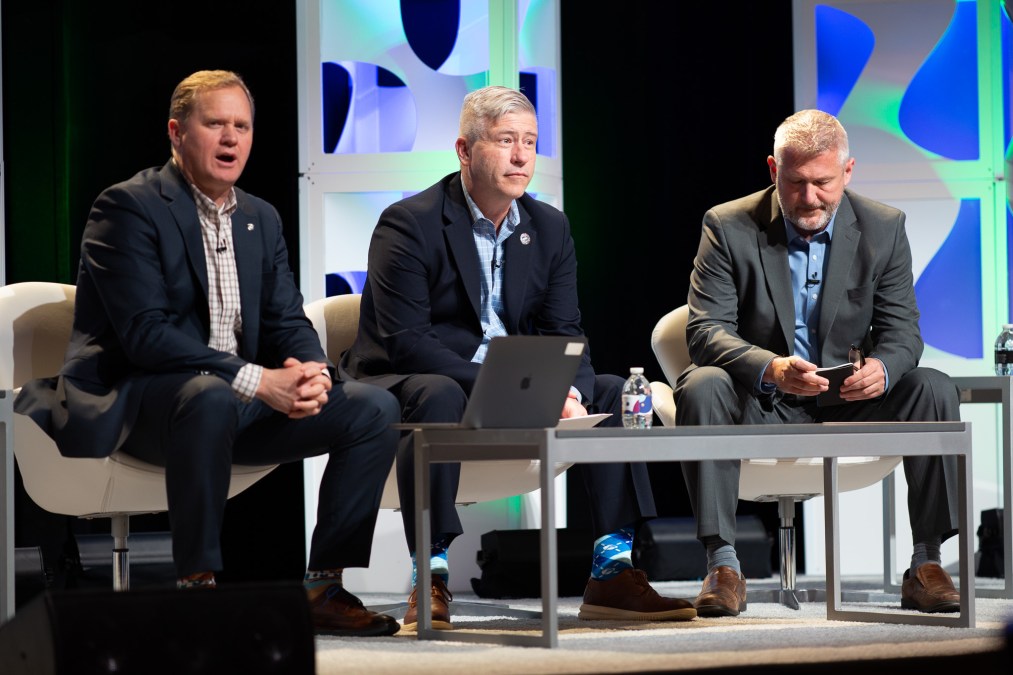Pandemic fraud made state CIOs’ ‘blood boil’

With some estimates on how much money was stolen from COVID-19 relief programs running into hundreds of billions of dollars, state chief information officers continue to be burdened with distributing benefits quickly, while reducing fraudulent payments to bad actors.
During the closing session of the National Association of State Chief Information Officers midyear conference on Tuesday, Utah CIO Alan Fuller told the audience that his own napkin math places the amount of fraudulent payments distributed by state governments at $560 billion, a figure he said he’s not content to ignore.
“We’ve had as much fraud during the pandemic as we’ve had come from this massive federal spending plan,” Fuller said. “That makes my blood boil. I hate that. I pay my taxes honestly, I know you do too, and I want that money to go to things like defense, education, roads and all kinds of good uses for American money.”
Fuller’s attitude, though, isn’t universal throughout government, he said, citing conversations he’s had with other state leaders who he said were content to accept the current levels of fraud as just another cost of doing business.
“In my state, there was a state executive, who I will not name, who said, ‘Alan, there’s always going to be some percentage of fraud and our goal is to reduce it, but we’ll never get it to zero.’ And I’m like, ‘OK, but $560 billion?’ It’s massive,” Fuller said. “It’s absolutely staggering how much fraud there was. And we’re going up against nation states, we’re going up against organized crime units.”
Arizona CIO J.R. Sloan, who was in the audience, told StateScoop it’s important for state CIOs to consider fraud prevention a “stewardship issue” and to not accept the status quo.
“Sometimes people say, ‘Oh don’t worry, that’s federal money.’ It’s like, we paid those taxes! I don’t care whether it’s federal money, it’s state money,” he said.
North Carolina CIO Jim Weaver, who joined Fuller on stage, pointed to work by his state’s Government Data Analytics Center, to limit fraud with some success. NASCIO previously recognized North Carolina’s commerce and employment security offices for their work employing data analytics and various security tools to detect and reduce fraud. According to the center, it created more than 100 new fraud “rule checks” to verify identity and reduce fraud during the pandemic and created a predictive model with a 75% “true detection” rate for spotting fraudsters.
Weaver said some in state government don’t feel an incentive to do work that would only return dollars to the federal government, rather than fill state coffers, but that it’s the CIO’s job to use whatever tools available to ensure funds are distributed legally.
“At the end of the day, our agencies own that data,” he said, “but it’s an effective use of technology that gives us positive outcomes.”






